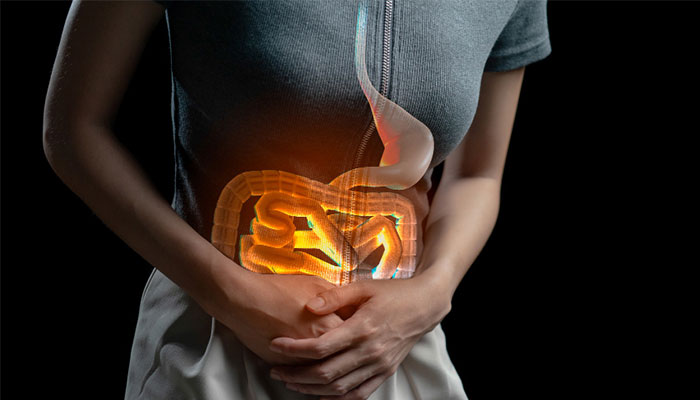Introduction
Crohn’s disease is a gastrointestinal disorder that is classified as one of the most common inflammatory bowel diseases. It is characterized by periods of remission and progression of disease severity over time. Inflammation can occur in any area of the gastrointestinal tract, from the mouth to the anus, and can manifest itself in the form of ulcers, narrowing of the lumen and fissure, or the formation of fistulas.
Signs and symptoms of Crohn’s Disease
- Abdominal pain
- Loss of appetite
- Diarrhea
- Fever
- Fatigue
- Rectal bleeding
- Perianal lesions
- Bowel perforation
- Malabsorption
Causes of Crohn’s Disease
The exact cause of Crohn’s disease is unclear, but it involves a combination of genetic, environmental, and immune system dysregulation.
Understanding Crohn’s Disease in Ayurveda
According to Ayurveda, Crohn’s disease is referred to as “Grahani” disease. Grahani is an anatomical term used to describe the small intestine (ileum and jejunum). Vitiation or inflammation of this particular part due to an imbalance in the doshas Vata, Pitta, and Kapha can lead to a wide range of symptoms similar to Crohn’s disease, anywhere in the digestive tract.
The degree and type of symptoms may differ depending on the doshic predominance and involvement. Ayurveda identifies Mandagi (poor appetite and digestion) as one of the primary causes. Improper or irregular dietary habits and irritable digestive disorders are the other causes.
Treatment and Management
Medications, such as anti-inflammatory drugs (corticosteroids, aminosalicylates), immunomodulatory (azathioprine, methotrexate), and biologic agents (anti-TNF drugs, integrin inhibitors), are commonly used to reduce inflammation, control symptoms, and induce remission. In severe cases, surgery to remove affected portions of the intestine may be necessary.
Palliative Care provided by SGP’s PSA can also be an integral part of managing Crohn’s disease, particularly for individuals with advanced disease or persistent symptoms. Palliative Care provided by SGP’s PSA aims to enhance quality of life by addressing pain management, symptom control, emotional support, and psychosocial well-being.
FAQs about Crohn’s Disease
-
A person in their 20s can develop Crohn’s Disease. It is typically diagnosed in individuals aged between 20 and 30, however, it can affect individuals of any age, including children and those over the age of 60.
-
Crohn’s patients may be eligible to donate blood, however, it is important to note that they must not donate due to the long-term, chronic, and relapsing nature of the disease. Crohn’s disease has systemic effects, such as fatigue and anaemia and may be associated with other disorders, such as arthritis, which can have an impact on the donor’s overall health.
-
It is important to consider the Mediterranean diet while determining what foods to consume with Crohn’s disease. Generally, a Mediterranean diet includes a balanced diet of whole grains, fruits, and vegetables, as well as healthy fats and lean meats. Additionally, it should include fish, beans, and eggs, while avoiding processed foods that can cause inflammation in the gut.
-
If left untreated, Crohn’s disease can cause intestinal obstruction, ulcers, fistula, anal fissures, malnutrition, and other associated health issues. Additionally, Crohn’s disease may increase the risk of developing blood clots and colon cancer.
-
Crohn’s disease can be aggravated by a variety of factors, however, there is no definitive proof that certain foods are the cause of the condition. Therefore, it is important to keep a food diary to identify individual triggers. Additionally, limiting dairy products, consuming smaller meals, staying hydrated and avoiding caffeine, alcohol and carbonated drinks can all help to reduce the severity of the disease.






